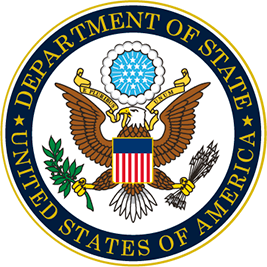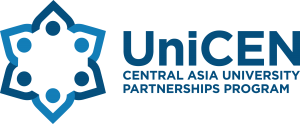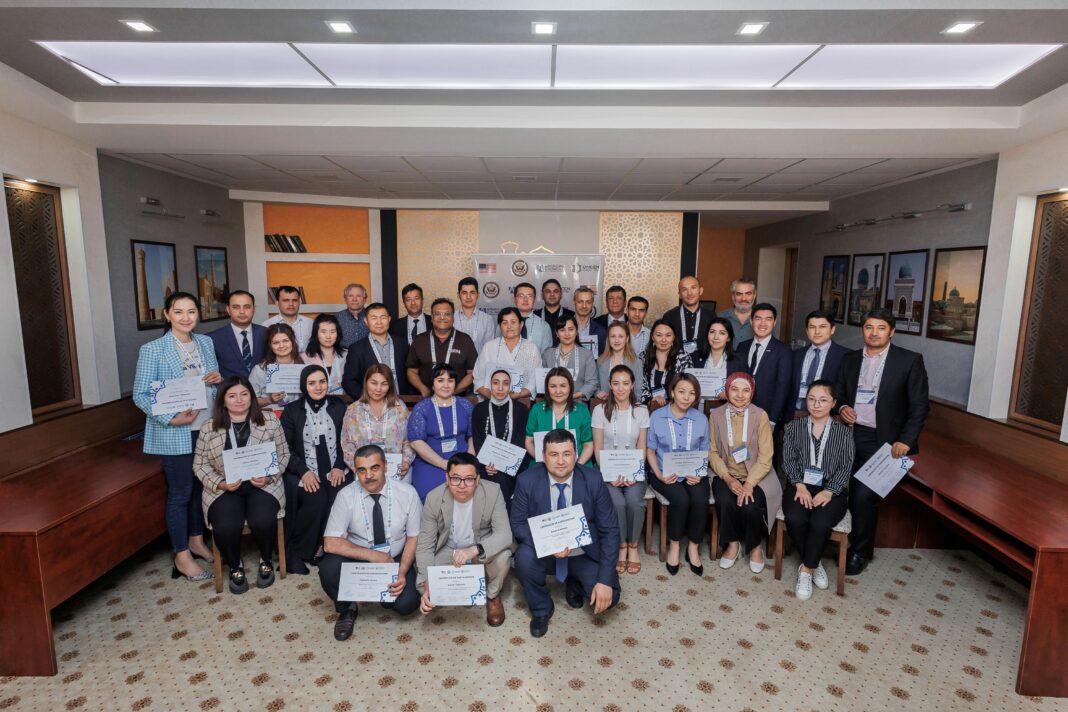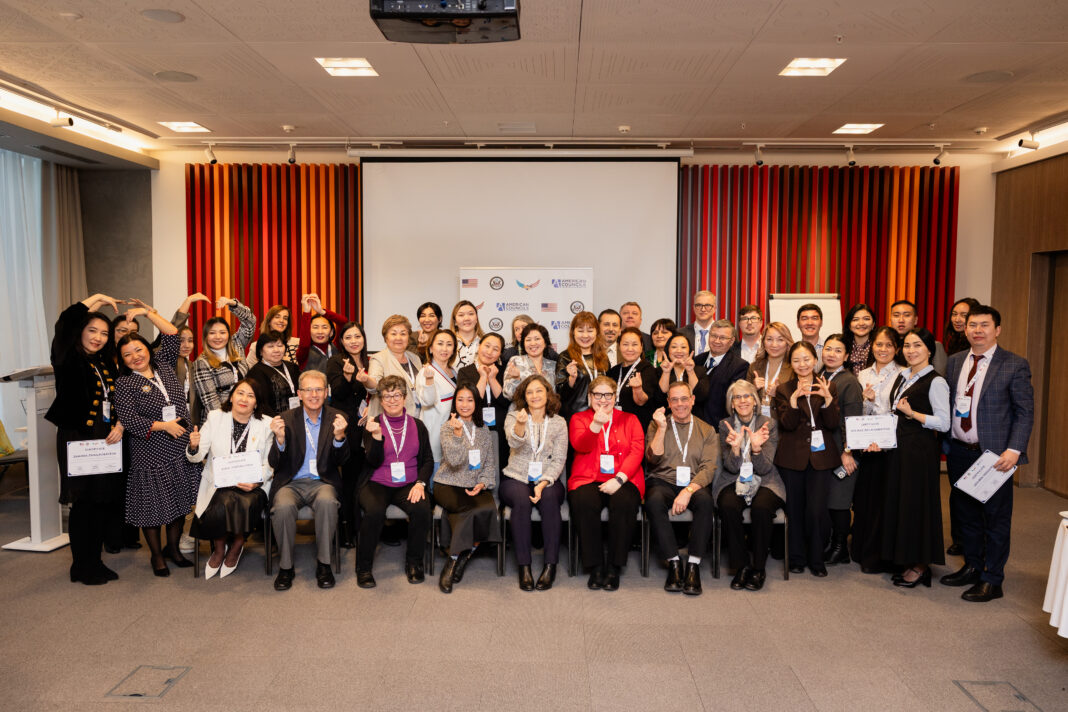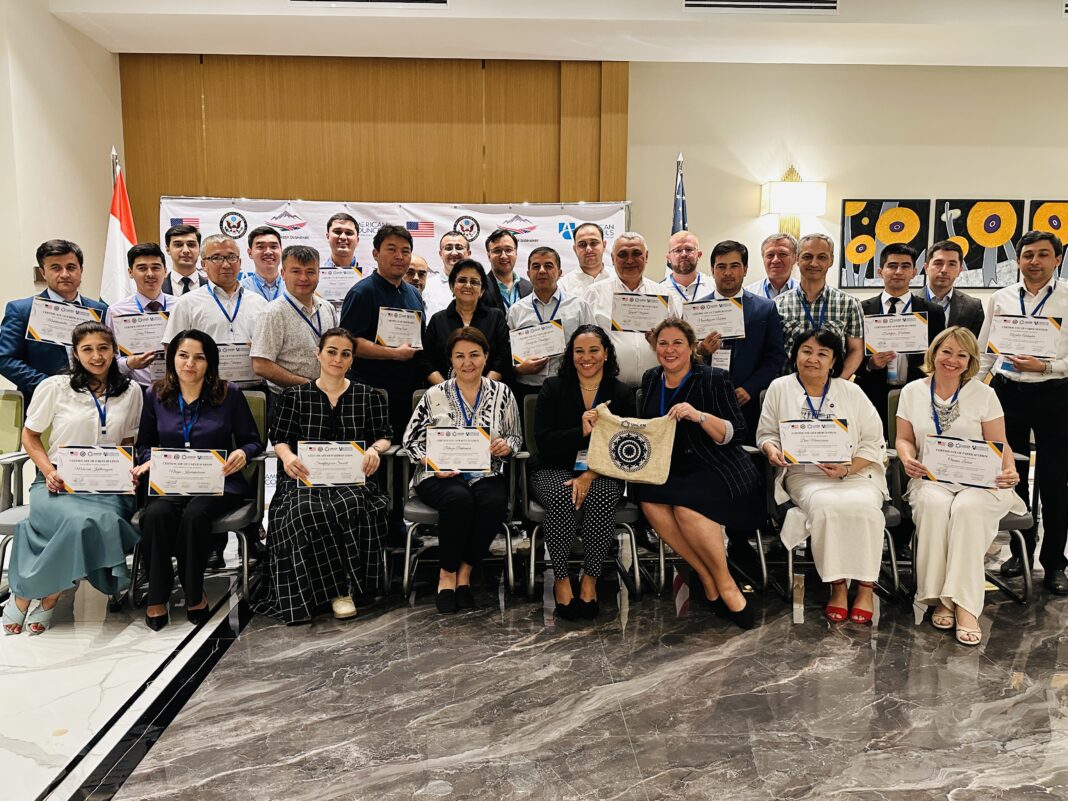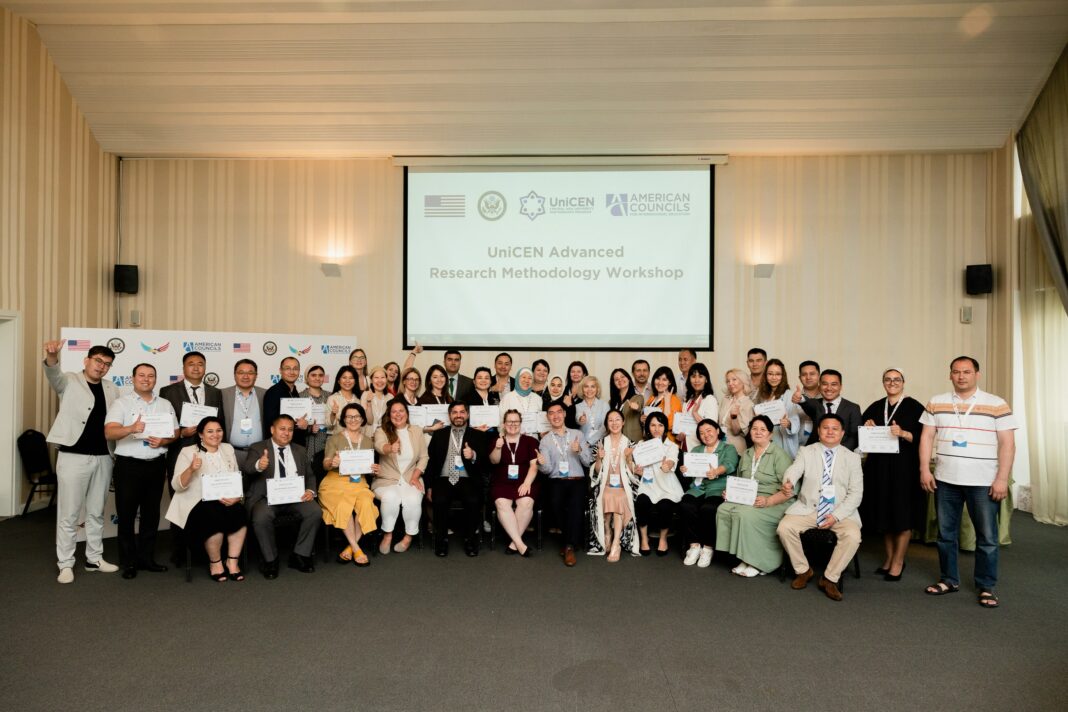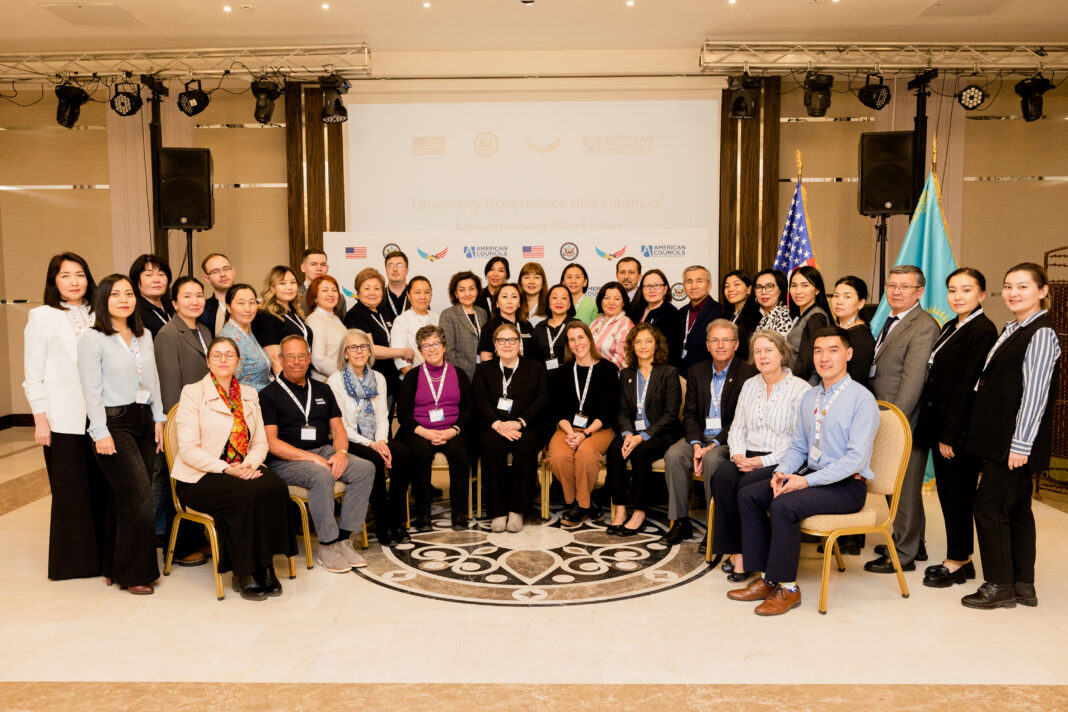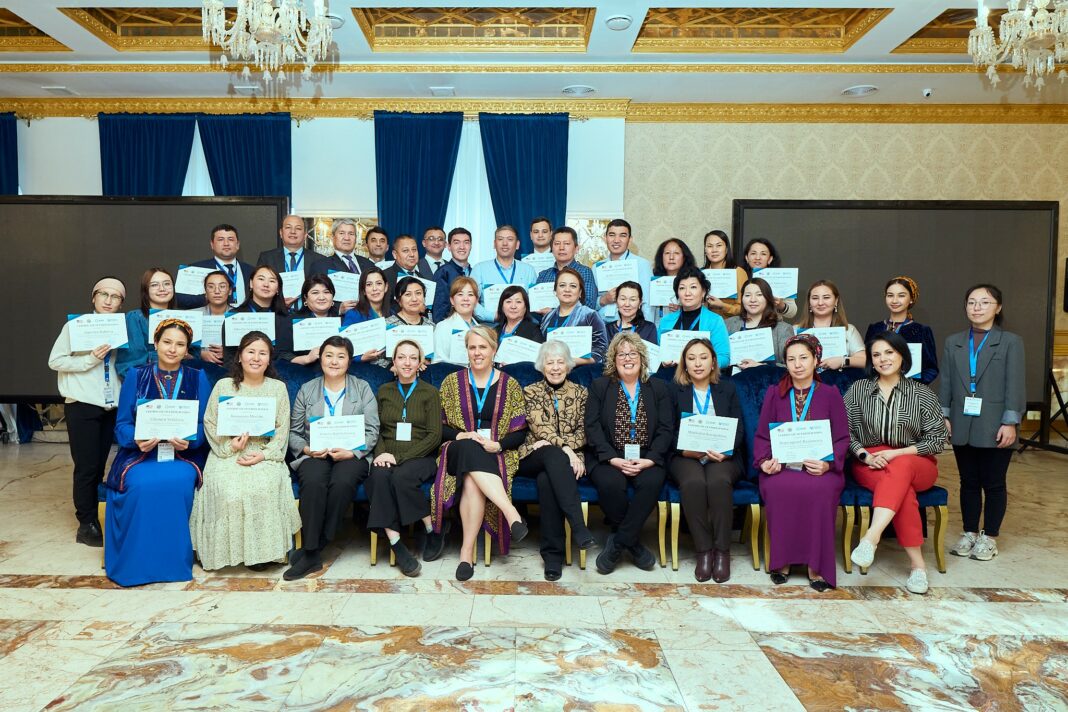First on April 27 and 28 in Tashkent and then on May 1 and 2 in Samarkand, Uzbekistan, the U.S.-Central Asia University Partnerships Program hosted 2 new capacity building workshops for university administrators, researchers and faculty members from Kazakhstan, Tajikistan, Uzbekistan, and Kyrgyzstan. The key objectives of these events were to enhance the research capacity of Central Asian faculties and to promote interdisciplinary and regional cooperation.
The agenda of these intensive 2-day workshops combined presentations, interactive skills-development exercises in small groups, and group presentations. The topics selected for the program were intended to equip the participants with knowledge and practical skills necessary for successful research collaborations and highly rated academic publications in peer-reviewed journals. Among other topics, the trainers discussed and provided insights to the participants on how to find a powerful research story, how to carve out a manuscript out of their research work, and how to present data in a most efficient way. The team of experts also elaborated on the issues of academic honesty and research ethics and navigated the participants through the nuances and pitfalls of getting published in international journals. The program culminated in group presentations in which they demonstrated their 2-minute “elevator pitches” intended to provide a powerful presentation of their research topic to a target audience.
To lead the interregional workshops, American Councils invited two prominent U.S. experts who were also UniCEN alumni: Professor Khanjan Mehta, Vice Provost for Creative Inquiry and Director of the Mountaintop Initiative at Lehigh University, and Dr Jay Turner, Head of the Division of Engineering Education at Washington University in St. Louis. Dr. Hamid Shahbazkia, Professor of Westminster International University in Tashkent co-led the workshops in both Tashkent and Samarkand and Dr. Rauf Salahodjaev, Professor at Tashkent State Economics University and AKFA University served as a facilitator of group discussions.
Each workshop was attended by over 40 participants selected from a pool of 530 applicants. In their post-program surveys, the overwhelming majority of participants noted they had left the workshop feeling they were better prepared to collect and analyze data for their research, developed a better understanding of how to find the right journal for their publications, and were more confident collaborating with colleagues from Kazakhstan, Kyrgyzstan, Tajikistan, and Uzbekistan.
UniCEN will continue its program of capacity-building workshops for Central Asian partners with a workshop in Almaty, Kazakhstan on June 9-10. This workshop has already attracted 365 applications from senior university administrators, faculty, and researchers from four Central Asian countries for 40 places available.

